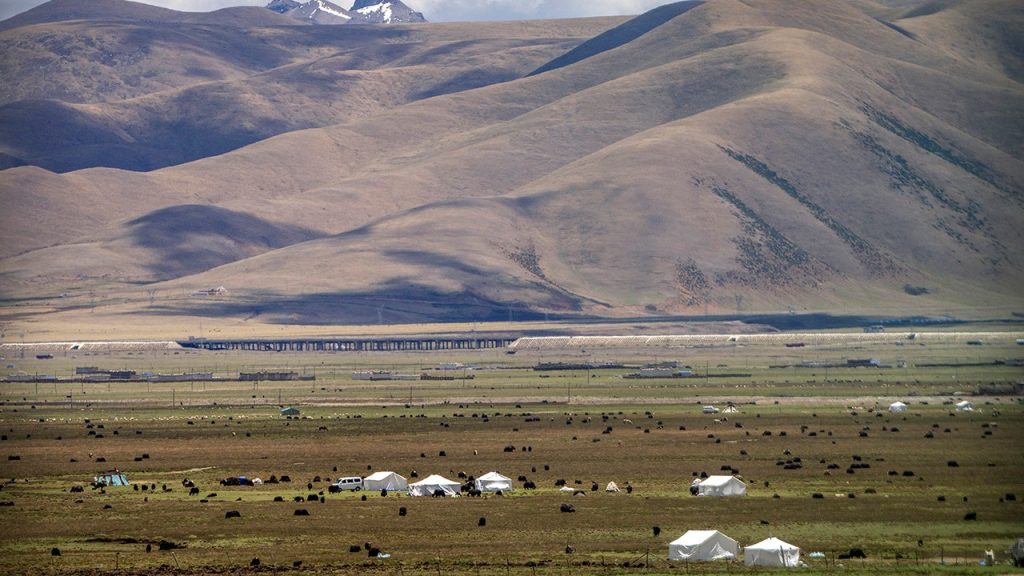An extensive report by Human Rights Watch highlights the forced urbanization of Tibetan villagers and herders in China, aimed at assimilating them through control over their language and traditional Buddhist culture. Contrary to official claims, the report presents evidence of villagers being coerced into relocating, with their homes destroyed upon departure. These efforts are part of a larger pattern of demands for ethnic minorities to adopt Mandarin and pledge allegiance to the ruling Communist Party in regions that include Tibetan, Xinjiang Uyghur, Mongolian, and other minority groups.
China asserts historical claims over Tibet, despite only gaining firm control after the Communist Party came to power in 1949. The report details coercive tactics employed by local officials under pressure from higher authorities in Beijing and Lhasa to implement relocation policies. By the end of 2025, over 930,000 rural Tibetans are projected to be relocated to urban centers, where they face challenges in finding work and are deprived of traditional sources of income. Additionally, more than three million rural Tibetans have been forced to abandon their nomadic lifestyles for settled living.
The forced relocations are causing erosion of Tibetan culture and ways of life, as former farmers and herders are compelled to work as wage laborers in off-farm industries due to lack of choice. China defends its policies in Tibet as necessary for stability and development in a strategically important border region, dismissing accusations of human rights violations as baseless. Foreigners must obtain special permission and journalists are largely prohibited from reporting in the region, with Chinese state media outlets being the main source of information.
China claims to have lifted millions out of extreme poverty through its relocation programs, which have improved access to transport, electricity, healthcare, and education for isolated communities. However, these claims have not been independently verified. The country’s economic growth has slowed as it grapples with an aging population and high youth unemployment rates. HRW calls for independent academic surveys to assess the impact of relocations on affected communities and recommends a U.N. investigation into human rights violations in Tibet, Xinjiang, Hong Kong, and across China.
In conclusion, the Human Rights Watch report sheds light on the plight of Tibetan villagers and herders who are being forcibly relocated in China’s efforts to assimilate ethnic minorities. The coercive tactics employed by authorities and the erosion of traditional ways of life have raised concerns about the preservation of Tibetan culture and rights. Despite China’s claims of progress and development in Tibet, the lack of independent verification and restrictions on foreign access paint a more concerning picture. HRW’s recommendations for further investigation and corrective action underscore the need for international scrutiny and accountability in addressing human rights violations in China.


